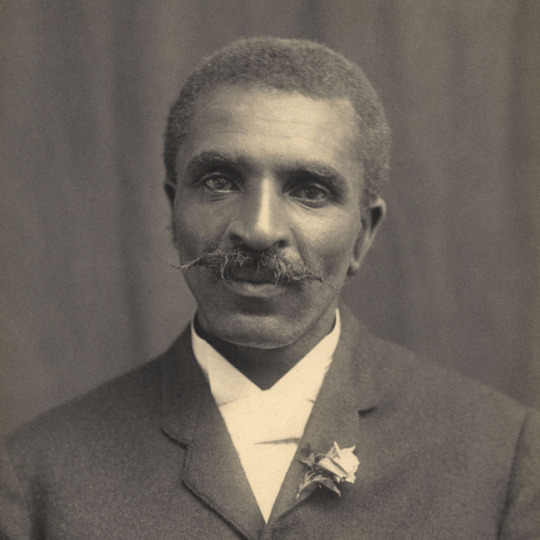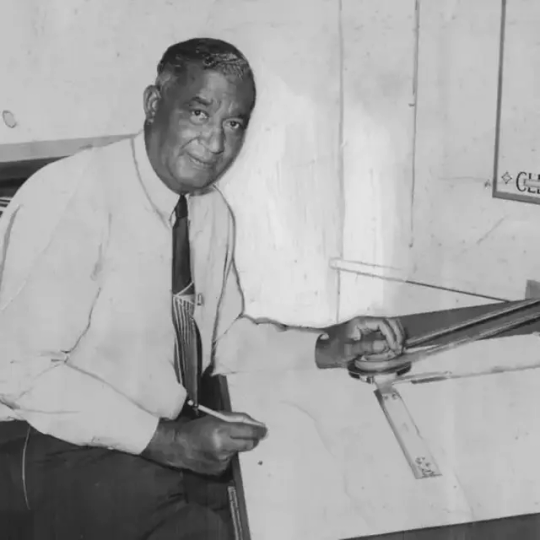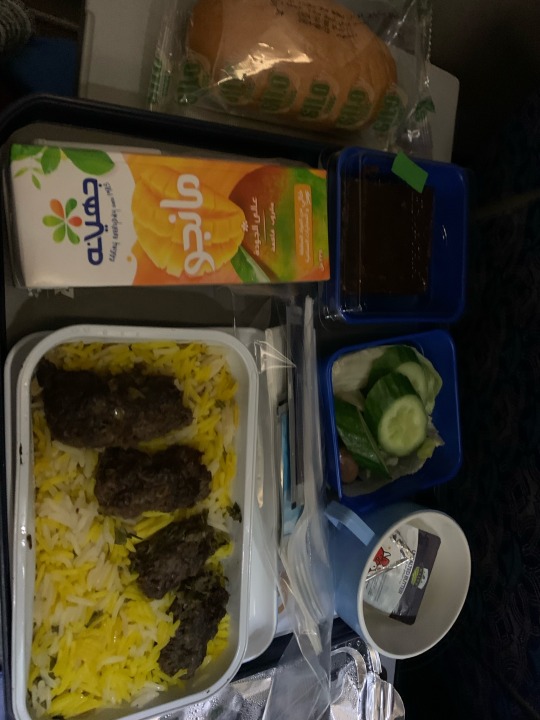#Natural Peanut Exporter
Explore tagged Tumblr posts
Text

#Natural Peanut Exporter#Natural Peanut#Peanut Supplier#Peanut#Peanut in India#Peanut in Uttar Pradesh#Export data of peanut#Dry Fruits#Nuts#Exporter#Supplier#Uttar Pradesh#India
0 notes
Text

Natural Peanut Exporters, Groundnut Suppliers in Rajkot, Gujarat, India
#Natural Peanut Exporters in gujarat#Natural Peanut Exporters in india#Groundnut Suppliers in Rajkot#Groundnut Suppliers in gujarat#Groundnut Suppliers in india
0 notes
Text
On a more serious note, the Islamic Revolutions of the 19th Century West Sudan (region) are interesting because they provide a relatively early example of holistic ideologically-motivated revolution that follows a deliberate plan of societal renovation. This contrasts with the many less directional revolutions that sought to solve very specific issues or merely change the individuals/associations who held power in society without changing the social structures themselves.
Like the backbone of these Islamic revolutionary movements derived from the West Sudanese intelligentsia and associated strata. Usman dan Fodio, Seku Amadu and Al-ḥājj 'Umar were all prominent scholars with close ties to the regional Islamic mercantile community, while much of their initial following derived from their students and the relatives of students. These movements also had very clear ideas of how they wanted to restructure society both socially and economically. While rallying against the specific misdeeds of local rulers (abuses of power, unfair taxation), each of reformers also had their sights set higher than the replacement of bad individuals with good ones.
Instead of merely removing the morally corrupt and religiously syncretic rulers, the reformers strove to expunging all pagan elements from broader society while establishing a stronger education system to more permanently spread and maintain orthodox Islam within their territories. And instead of merely lowering the taxes as new rulers they changed the basis that taxation laws were founded on; employing Maliki school Sharia instead of going entirely off the whims of worldly rulers. There were institutional changes to the very nature of Statehood in the region too. States were no longer ruled by kings who were divine personages themselves; they were replaced by Amirs who functionally first among equals with the other governing scholars. This meant that many formerly powerful institutions were either rendered impotent (Palace Slave officials) or eliminated altogether (the office of Queen mother/sister). Like through their study of Islamic literature and analysis of the societies they lived in, these scholars came up with a plan to change their societies and to one extent or another put it into action. The changes the wrought went far far deeper than the names of the rulings families
Mind you it's important not to exaggerate the extent of these changes. They may have deliberately altered the nature and mechanisms of culture and politics, but the mode of production did not receive similar treatment. There were certainly economic changes in the region throughout the 19th century but these were driven more by international trade relations than any domestic political programmes*; a decline in demand for slaves and increase in demand for the agricultural products from the region (Kola Nuts, Peanuts, Palm Oil etc.) meant a region wide decrease in the export of slave as more of them were retained locally for employment in agriculture. However this was a process that occurred throughout West Africa rather than being confined to the Islamic Sudan; it was not a result of deliberate effort by Islamic Reformists. These were revolutions of the Superstructure, not the Base. To put it in European terms they had much more in common with the Liberal revolutions of the 18th century than the Communist ones of the 20th.
Still the fact that there was any kind of genuine ideological program at all, complete with its share of well known thinkers and an entire library of relevant literature, certainly makes it more recognisable to the modern revolutionary than many of the other civil wars and succession disputes given such a title. Even ignoring how important this process was for the West Sudan specifically, it's a very interesting slice of history that more people should be at least aware of. This post was largely based on volume 6 of the UNESCO General History of Africa (mainly chapters 21-3) and I'd highly recommend reading the whole thing if you're curious. At bare minimum it should be remembered that this sort of history is not unique to Europe
*I've definitely read a paper (which I cannot for the life of me find in my notes so if anyone knows something relevant it would be greatly appreciated) that suggests these processes aided the Islamic Reformers as many of the Pagan/Syncretic rulers relied mostly on slave raiding and sale while the more orthodox Islamic communities were already more involved in plantation production. However I've seen nothing to suggest this was a direct influence on or result of Islamic Reformist politics and a similar process occurred in the Pagan kingdoms to the South and East too
47 notes
·
View notes
Text
Train fact: the longest* train ever
like all things to do with railways, you can get pretty granular and pedantic with this one, so this is likely to also be the longest post ever. Sorry, but actual facts (and pretty pictures) under the cut!
The longest passenger train in regular service is Australia's 'Ghan, a luxury tourist train that runs between Adelaide and Darwin, and averages 774 m/2,539ft in length. that's twice as long as the Empire State building is tall.

(id in alt)
The reason I say "in regular service" is because the longest passenger train EVER was run by the Rhaetian Railway in Switzerland, to celebrate 175 years of Swiss railways, and that was more than twice that long at 1,910m/6266.4ft. Almost an entire Kentucky Derby worth of train! It had to go incredibly slowly, maxing out at 35km/h, to avoid overloading the electric systems of the railway and local power grids.
youtube
[Video desc: a youtube video from CBS news of the recordbreaking passenger train. The train is made up of several red electric trains coupled together, and moves through alpine landscapes of mountainds and coniferous forest. It is so long that it is visible only in coils, like a snake. Some shots show the train leaving one tunnel while entering another, or driving under a viaduct while the tail end crosses it, and several shots show people watching and taking photographs.]
But, the thing with passenger trains is that they have a lot of rules and regulations applied to them that freight doesn't have to follow. So freight trains get HYUGE.
The average American freight train (I consider the USA to be freight trains' natural habitat because there is a whole bunch of wide open space for for them to crawl around) is 5400 feet long, and the standard in Europe is around 3000ft. That's a 10-20 minute walk at average adult walking speed, just to go from end to end. You know when you stop at a level crossing, and a train goes by, and it seems like it's going by forever? That was probably one of these.
But the average frieght train is peanuts to mining trains. Trains came from the mines, and they still dominate there. The biggest trains in the world are consists of ore and coal, run by tiny crews from extraction point to export. This has always been true.
For example, the Datong–Qinhuangdao railway in China runs coal trains daily that are 2.614 km/8576 ft long. That's more than 1.5 miles, or three times as long as the burj khalifa is tall. And that's the standard for that line.

(id in alt)
But that doesn't break any records.
The longest production train, running regularly, is the Sishen–Saldanha railway line's maganese/iron ore train. These trains are four kilometers long. 4,000 meters, almost half the height of the highest peak on earth, in wagons full of metals. Too long to be seen in a single photograph- the one below was stitched together from four separate pictures, taken from the air:

(id in alt)
and that's still not the record!
The record for longest frieght train is held by BHP, an Australian mining company. It was made for the record, but the capacity is still there. This train ran on june 21st 2011, and was 682 wagons long, over seven kilometers. Almost twice the length of the Sishen–Saldanha's, and a quarter the height of Olympus mons. If you stood this train on its end, it would be taller than Mt Denali. If you started at the front of the lead locomotive, and ran as fast as you physically could, you wouldn't reach the last wagon for an hour.
There are entire branch lines shorter than this train.
Unfortunately, there are no good photos, because nobody in space had time for railfanning that day, but there are plenty of pictures of other BHP trains!

(id in alt)
#mod note#bhp#trains#Sishen–Saldanha railway line#Datong–Qinhuangdao railway#the ghan#Rhaetian Railway#irl trains#train facts!
183 notes
·
View notes
Text


People
Hunger Has Natural Causes, Right?
Despite the fact that the world produces 1.5 times as much food as is needed to feed the human population, starvation and famine are endemic to modern capitalism. 900 million people die from starvation each year, but there is no global shortage of land to grow food. The UN estimates that there is enough land to feed a world population of 14 billion people. But what is it being used for? As in the ‘developed’ North, large landowners control the vast majority of land. In 83 countries, 3% of farmers control 79% of farmland, much of it left unused in order to maintain profits. Big Food made over $7bn profit from the South in 1990, and probably far more through transfer payments. It uses its economic power to force down the prices of rice, coffee, sugar, cocoa and cotton. Average prices in 1989 were 20% down on those of 1980. This led to an increase in foreign debt for Southern countries, with consequent increased economic hardship for the poor majority (higher taxes, inflation, etc.). Brazil has an area of farmland the size of India left uncultivated while 20 million rural poor are landless; the richest 1% owns 15 times as much land as the poorest 56% of Brazilian farmers. In Guatemala, 2% of landowners own 66% of the land. In the Philippines agribusiness producing sugar, cotton and pineapples for export has pushed 12 million peasants into the lowland forests.
Drought in Africa is part of a millennia-long cycle that human societies adapted to. It is cash crop exploitation, the market economy and taxation that produce starvation, not drought. During the 1970s, when famines first began to be reported regularly, ships that brought relief supplies to the port of Dakar left carrying peanuts, cotton, vegetables, and meat. In Bangladesh, often cited as the model for the Malthusian argument, 90% of the land is worked by sharecroppers and labourers. Many starved after the 1974 floods, while hoarders held on to four million tons of rice. In the mid-80’s severe famines occurred in the Sahel countries of Burkina Faso, Mali, Niger, Senegal and Chad yet during the same period record harvests of cotton were exported to the industrial centres of the world.
Cash crops go to feed the global supermarket, yielding higher profits for international capital and accelerating global industrialisation. Mexican soil and labour supplies almost 70% of the US market for much winter and early spring vegetables. The result is that agriculture for local consumption is squeezed out and the prices of staple foods rise. Up to 50% of total meat production in Central America is exported, mainly to North America. The “Green Revolution” of the 1970s and 1980s, that the ruling class said would feed the hungry, has in fact only supplied the global supermarket. The same will certainly be true of the ‘wonder crops’ of the GM revolution. The corporate claims that GM and industrial food production in general will ‘feed the world’ are straightforward lies. The maize/soya/ animal product system they are pushing so heavily is not a rational way to produce food — an acre of cereal is estimated to produce 5 times as much protein as one devoted to meat production, an acre of legumes (beans, peas, lentils) 10 times as much and an acre of leafy vegetables 15 times as much.
#hunger#humans#world hunger#classism#ecology#climate crisis#anarchism#resistance#community building#practical anarchy#practical anarchism#anarchist society#practical#revolution#daily posts#communism#anti capitalist#anti capitalism#late stage capitalism#organization#grassroots#grass roots#anarchists#libraries#leftism#social issues#economy#economics#climate change#climate
6 notes
·
View notes
Text
This Black History Month, Feeding America is celebrating the Black inventors who had a profound impact on our mission.

People like George Washington Carver, also known as Mr. Peanut for his revolutionary work creating new products from a single crop, the lowly peanut. And Alice H. Parker, a Black woman who never got the credit, or the fortune, for inventing what we now know as zoned home heating using natural gas. These trailblazers helped America transition to a major agricultural exporter. Their inventions helped farmers increase the harvest to the point that American farmers now feed the world, and those in need. At Feeding America, our work is tied to moving food from farmers to food banks. It is our mission to end hunger in America and many of these Black inventors helped pave the way for U.S. farmers to grow more food.
George Washington Carver (1861-1943)
Born a slave in 1861, George Washington Carver went on to become one of the most prolific agri-business inventors in American history. He invented crop rotation, and more than 300 uses for the peanut. including Worcestershire sauce, cooking oil, and cosmetics. His work is at the foundation of modern farming. It is because of crop rotation and the introduction of grain crops like corn and soybeans, that Feeding America can help our food banks provide for our neighbors in need. Carver helped American farmers feed America.
He was the first African American to earn a bachelor’s in 1894, then a master’s degree in agricultural science from what’s now known as Iowa State University. Carver invented crop rotation. Farmers were struggling to grow anything after years of harvesting a single crop. Carver suggested they plant peanuts, soybeans, and sweet potatoes which would add nutrients to the depleted soil. This method gave farmers a second chance at becoming leaders in agricultural exports.

It would be impossible for the Feeding America network of food banks to get the much-needed food they need to nourish feed our neighbors without the work of this man, Frederick McKinley Jones. He invented refrigerated trucks, which help food banks provide fresh produce and meat to their communities safely. And, because of his work, food banks can rely on our massive distribution network to transport fresh produce from farmers across the country on a regular basis. In fact, our network moved 3.8 billion pounds of dairy, produce, and meat -- perishable foods that wouldn’t be available were it not for refrigerated trucks, trains, planes, and ships.
His work revolutionized global logistics. It’s at the heart of what’s now known as “the supply chain.” That is, he made it possible to transport perishable food safely from one place to the next. He co-founded the U.S. Thermo Control Company (Thermo King) which was worth millions by 1949 and later acquired by Westinghouse.
A self-taught mechanic and World War I Army veteran, Jones received more than 60 patents for refrigeration as well as X-ray machines, engines and sound equipment. He was the first African American to receive the Presidential National Medal of Technology.

A farmer and a free man before the Emancipation Proclamation, Henry Blair invented two devices to increase agricultural productivity. The first was the corn planter in 1834, and the second was the cotton planter in 1836. His goal was to reduce inefficiencies from manual labor. The Mechanics Magazine published August 6, 1836, described it as “saving the labor of eight men.” Blair’s discoveries helped farmers grow more food for the masses, not just their local communities. For Feeding America, farmers are at the heart of what we do. A large percentage of the food our neighbors receive at their local food pantry is packaged right on the farm where it's grown thanks to our partnership with the USDA. Inventions like Blair's are what fuel the heartland.
While not at the heart of our mission, Feeding America often helps people in need who have to make the tough choice between paying for heat or buying food. During cold winter months, there are many who choose to pay their heating bill and forsake food. They turn to their local food pantry as a stop-gap. The Feeding America network of food banks provides a safe, consistent place for families in need to access food.

Alice H. Parker, the mother of modern heating, invented the gas-forced air heating system because she too wanted to provide a safe place for families.
Before her invention of the gas furnace, home heating wasn’t safe. Homes were heated with coal or wood-burning fireplaces. Parker was the first to develop natural gas as a cleaner, more efficient alternative to home heating in 1919.
An unsung hero of home heating technology, she revolutionized how we live today. But Parker didn’t have an easy go of it as a Black female inventor. The Civil Rights Movement had yet to give African Americans their rights and the Women’s Liberation Movement was further off. She never profited from her invention. So, we salute her. We know there are many families that struggle with tough choices these days with the rising costs of home heating. But for those who have a warm place to sleep and the modern advances of zoned heat, the next time you adjust the thermostat, say a silent thank you to Alice H. Parker.
5 notes
·
View notes
Text
February 9, 2024
About the boarding and delay, I was not sure if the plane was boarding late and/or being delayed because of time zone. The difference was one hour. But I know the waiting was taking forever. I was very inpatient because my layover was long. But I was happy to get on the plate and sat with no one.


This time, the leg room was more spacious however there was no screen in front of me. That means I would have to watch Netflix on my iPad. And the battery went down to like 30 percent. I lost track on how many episodes I had watched since I traveled to Africa.
I knew I needed a break from watching on screen, so I decided to read a book- a graphic novel about ADHD and other neurodivergent disorders. As much I tried to read, I lost motivation to keep reading because it’s manga- reading from right to left and it became confusing to read. My eyes were tired.
There were two seats on each side and four seats in the middle. Mine was two seats by the window. Even though I am a small person but still it was very difficult for me to lay down and sleep. How uncomfortable. I managed to sleep for an hour or so. I felt better afterward. I knew I needed some sleep because I would be seeing my two sisters, brother in law and five nieces. Hoping I will be able to have some decent sleeps during my stay in Nigeria. I often have hard time to sleep longer and end up being sleep deprived.

My lunch/dinner meal was all right. Just one main entree, side salad, small dessert and bread with spreads (butter or cheese). Earlier, I was very hungry, I was handed out a slice of bread and it was not any good. I threw it away and ate snacks (apple


Or is that a slice of pound cake? Have no absolutely idea what that is.
Cinnamon rice cakes and apple oatmeal crumble) that I brought with me. My stomach acted funny lately but I was able to drink a lot of water to give it a good cleansing and relief.
Let’s learn a bit more about Nigeria before my arrival in Nigeria where I was born and raised until age 5.
Did you know…?
Source:
https://www.kids-world-travel-guide.com/nigeria-facts.html
As of 2023, there are over 220 million people living in Nigeria and 3.8 million people living in Abuja, the capital city of Nigeria. Lagos was the original capital city of Nigeria.
Nigeria’s motto is unity and faith, peace and progress. 53 % Muslims and 44 % Christians
Nigerians are known for being the most happiest people in the world.
Official Language: English
About 65 percent Nigerians age 15 and over can read and write.
Nigeria is the largest country in the Western Africa, the most popular country in Africa and the seventh most populous country in the world. Go Eagle Go!
Flag colors: Green and White.
Nigeria is about twice the size of California or slightly bigger in size than Venezuela. You can’t miss Nigeria on map.
Nigeria is not only an oil-rich country, but also mainly exports petroleum, petroleum products, smaller amount of cacao, rubber products, cotton and palm oil.
Nigeria’s nuts may be the only one peanuts that I love eating and can’t stop eating them!
That’s all for fun and interesting facts about Nigeria.
What I have to prepare myself before landing in Lagos is that the weather will be very unbearable. Very hot in high 90-100 degrees with humidity. Hoping that will help me lose some weights ha!
Good thing I bring my sun hat and deodorant to maintain good hygiene. I definitely would have to drink a lot of water otherwise I would be fatigue. I also have to take malaria pills and sleep under the mosquito nets. I wouldn’t be surprised if I have a lot of bug bites due to my sweet blood.
Foods here are what I look forward to the most. I am a foodie and like to eat. I have to be careful with foods because I can end up become sick due to bacterial infection from raw/uncooked food. Foods are often made fresh, from scratch and are plant-based and/or naturally processed (no/less chemical additive or artificials).

About one hour left to land down… finally after nearly 24 hours of traveling from DC to Lagos. Hoping customs wouldn’t take a lot of my time to be allowed entering Nigeria. To enter Nigeria, you must have either visa or valid Nigeria passport.
I was not able to renew my Nigeria passport in time before my departure for Nigeria. So , I applied for a visa instead. The cost for visa and passport application and process is about the same. Visa is usually good for single or multiple visit up to 6 months. But I am granted for a five year visa because I was born in Nigeria. I hope I will take my family back to Nigeria again before my visa expires. My daughters and Harish had visited Nigeria before but not my sons. My daughters don’t remember their visit in Nigeria and would love to visit there again. Gotta save up $$$. Roughly, $8,000-$10,000 flight tickets for a family of six.
Wow I can’t believe I will be in Nigeria less than an hour. What a surreal feeling. I will be very overwhelmed and in awe for sure.
Just landed in Lagos!!!! Finally after 24 hours of waiting and traveling!
Talk later. Oxox
3 notes
·
View notes
Text
𝐈𝐍𝐂𝐎𝐌𝐈𝐍𝐆: @cuckoo-among-beasts // NIE HUAISANG

Huaisang knows he arrives unannounced, but he was in the area for sect business and thought it would be rude of him to not visit his friend, and if he remembered it correctly (which he did), today was the day on which Wei Wuxian had been born. Not that birthdays are generally celebrated, but this man had died and returned and Huaisang thinks that's worth celebrating. After greetings have been exchanged to everyone who demands it, Huaisang turns to his friend with a wide grin. "I bought you some gifts." He waves a Nie disciple over, who carries a crate containing some Emperor's Smile, but also the Best's Delight, Qinghe's famous baijiu, and peanuts, those as well a known export of Huaisang's home. As a joke, and for old times sake, there is a new... educational book for cut-sleeves in the bottom of the crate, but even if it's mainly meant as a joke, the illustrations are first class.

THE DAY IS NOTHING OUT OF THE ORDINARY, the way Wei Wuxian has always seen it — yet it was doomed to draw attention to him from the very first hours of the morning. Marking the first year of his new life, perhaps. It makes him think about the greatest gift of all, to wake up to the stunning sight of his husband, to hear the juniors argue outside the door, pondering whether he'd have the decency to be awake by eleven, and now — now he's reminded of something else. ❝ Nie-xiong, you shouldn't have— ❞ his words are cut short, way to abruptly as the fond surprise in gray eyes is replaced with something else. His interest, very much piqued by the book that's hiding bashfully beneath all the wine, and there's no inclination in him to hide the fact.

( If this curio lands into Lan Zhan's hands, he won't be able to move until his next birthday, and if he decided to be a good boy and share the gifts of Qinghe's finest craftsmen, he would hardly even survive until then. Though part of him is forced to doubt if there's something the book might suggest that his husband isn't aware of already. )
A hand comes to poke his friend's shoulder as a faux rebuke, both for the book and for knowingly ( oh, how knowingly! ) breaking the rules of Gusu Lan, but the shameless tint to his grin betrays the nature of the gesture. ❝ Thank you, ❞ Wei Wuxian says at last — the eagerness with which all of those reminders about the good old days are met still plays on his lips, the eagerness to see his old friend more often, too. Besides, there've been all sorts of rumors lately... ❝ Why don't you stay a little longer? I can't drink it all by myself, and I haven't seen you in a while. ❞
1 note
·
View note
Text

Peanut Butter Exporter | Peanut Butter Manufacturer – Sonya Foods Manufacturer and Exporter of Peanut Butter in India. Sonya Foods Offers the Best Peanut butter with uncompromising taste & good health in mind. We are considered one of the leading peanut butter Manufacturers in India as we have.
SONYA has installed state of the art plant near Ahmedabad to produce the best quality Blanched Peanuts, Peanut Paste, and Peanut Butter in flavors like Crunchy, Creamy, Natural, Chocolate, Honey, Spicy, and No Added Sugar/Salt, etc. Our plant is located in the peanut-growing State of Gujarat, giving us a Location Advantage.
We manufacture and export not only in our 3 brands Sonya, HealthyfyUs, and Happy Hours but also do private labels for well-known Companies and Supermarkets around the Globe.
#peanut butter exporter#peanut butter#peanut butter manufacturer#peanut butter supplier#peanut butter india#peanut
3 notes
·
View notes
Text
#Natural Peanut Exporter#Natural Peanut#Peanut Supplier#Peanut#Peanut in India#Peanut in Uttar Pradesh#Export data of peanut#Dry Fruits#Nuts#Exporter#Supplier#Uttar Pradesh#India
0 notes
Text
Dhanraj Enterprise is the premier exporter and supplier of high-quality natural Peanuts from India. Discover the versatile and nutritious peanuts from India, the unsung hero of the food business and your kitchen. Explore their uses, benefits, and global appeal in cuisines and snacks.
#peanuts from india#indian peanuts#peanut benefits#versatile food ingredient#food business hero#kitchen essentials#peanut nutrition#indian peanut exports#healthy snacks#peanut uses
0 notes
Text
Best Peanuts Supplier & Exporter in India - N Thummars & Co.

N Thummars & Co. stands out as one of the best peanut suppliers and exporters in India, offering premium quality peanuts to customers worldwide. With a rich legacy of serving the peanut industry, the company has become a trusted name for both domestic and international clients. Specializing in a variety of peanut products, N Thummars & Co. is committed to delivering high-quality, nutritious, and safe peanuts that meet international standards.
Why Choose N Thummars & Co. for Peanuts?
When selecting a peanut supplier, quality, reliability, and affordability are key considerations. N Thummars & Co. ensures that their products meet all these criteria, making them the top peanut exporter in India. The company sources peanuts from the best regions in India, ensuring that they are grown in optimal conditions. This guarantees superior taste, texture, and nutritional value.
Premium Quality Peanuts
N Thummars & Co. provides a wide variety of high-quality peanuts, including raw peanuts, blanched peanuts, and roasted peanuts. Each batch is thoroughly inspected to meet the highest quality standards, ensuring that customers receive the best product. The peanuts are rich in protein, healthy fats, and essential nutrients, making them a healthy snack option and a key ingredient in various food products.
Wide Variety of Peanuts
Whether you're looking for peanuts in their natural form or processed for specific applications, N Thummars & Co. has you covered. They specialize in the export of bold peanuts, Java peanuts, and groundnuts. These varieties are widely used in the confectionery, snack, and oil industries. The company also offers custom packaging options to meet the specific needs of its clients.
State-of-the-Art Processing Facilities
The company uses advanced processing techniques to ensure that peanuts are cleaned, sorted, and packaged under strict hygiene conditions. This attention to detail ensures that the peanuts remain fresh and free from any contamination. N Thummars & Co.’s commitment to excellence in production and packaging makes them a leading peanut exporter from India.
Exporting Peanuts Worldwide
As a leading peanut exporter in India, N Thummars & Co. has established a strong presence in major global markets, including the USA, Europe, and the Middle East. The company is well-versed in international trade regulations and ensures timely delivery of peanuts to customers around the world. With a focus on customer satisfaction, N Thummars & Co. offers competitive prices and flexible shipping solutions.
Commitment to Sustainability
N Thummars & Co. is also dedicated to sustainable agricultural practices. They work closely with local farmers to promote environmentally friendly farming methods that not only produce high-quality peanuts but also protect the environment. By choosing N Thummars & Co., you are supporting a company that values sustainability and ethical business practices.
Conclusion
For those looking for the best peanut supplier and exporter in India, N Thummars & Co. is the top choice. Their commitment to quality, a wide variety of peanut products, state-of-the-art facilities, and focus on sustainability make them a leader in the industry. Whether you're in need of bulk peanuts for food production or retail, N Thummars & Co. has the expertise and products to meet your requirements.
For more information, visit N Thummars & Co. to learn more about their products and services.
#Best peanuts exporter in India#Leading peanut supplier in India#Top raw peanuts exporter#Groundnut supplier in India#Blanched peanuts exporter from India#Indian peanut exporters for USA#Premium quality peanuts manufacturer India
0 notes
Text
Top Exporter and Supplier of Peanuts (Groundnuts, Moongphali) in India: Om International

When it comes to peanuts, India stands as one of the world's leading producers and exporters. Among the many companies in this competitive landscape, Om International has emerged as a top exporter and supplier of high-quality peanuts, also known as groundnuts or moongphali. With a commitment to excellence, Om International ensures that customers receive the finest peanuts that meet global standards.
Quality and Variety
At Om International, we pride ourselves on our extensive range of peanut products. We offer various types of peanuts, including:
Bold Peanuts: Known for their large size and rich flavor, these peanuts are perfect for snacking and culinary applications.
Java Peanuts: Smaller in size, these peanuts are often used in making peanut butter and other processed products.
Raw Peanuts: Our raw peanuts retain their natural nutrients and are ideal for those seeking a healthy snack option.
Roasted Peanuts: Perfectly roasted for flavor and crunch, our roasted peanuts are a popular snack choice worldwide.
By providing a diverse selection, Om International caters to different preferences and needs, making us a preferred choice for buyers globally.
Commitment to Quality
Quality is our top priority at Om International. We source our peanuts from the best farms in India, ensuring that they are cultivated under optimal conditions. Our rigorous quality control measures guarantee that every batch of peanuts is thoroughly inspected for freshness, taste, and nutritional value. We understand that our clients expect the best, and we strive to exceed their expectations.
Health Benefits of Peanuts
Peanuts are not just a delicious snack; they also offer numerous health benefits. Packed with essential nutrients, peanuts are a rich source of protein, healthy fats, vitamins, and minerals. Some of the notable health benefits include:
Heart Health: Peanuts contain monounsaturated fats that promote heart health by lowering bad cholesterol levels.
Weight Management: Despite their calorie density, peanuts can help in weight management due to their high protein and fiber content, which promote satiety.
Nutrient-Rich: Peanuts are a good source of Vitamin E, magnesium, and antioxidants, contributing to overall health and wellness.
By choosing Om International as your peanut supplier, you not only get a tasty product but also a nutritious addition to your diet.
Global Reach
Om International has established a strong global presence as a trusted peanut exporter. Our products are exported to various countries, meeting the diverse needs of our international clients. We understand the importance of timely delivery and customer satisfaction, which is why we work diligently to ensure that our peanuts reach their destination promptly and in perfect condition.
Why Choose Om International?
Reliability: As a leading exporter, we have built a reputation for reliability and quality. Our clients can trust us to deliver superior products consistently.
Expertise: With years of experience in the industry, our team is knowledgeable about market trends, quality standards, and customer preferences.
Customer-Centric Approach: We prioritize our customers’ needs and strive to build long-term relationships based on trust and transparency.
Sustainability: We are committed to sustainable farming practices that support the environment and local communities.
Conclusion
In summary, Om International stands out as a top exporter and supplier of peanuts in India. With our commitment to quality, diverse product range, and dedication to customer satisfaction, we are the ideal partner for anyone seeking high-quality peanuts. Whether you are a retailer, manufacturer, or distributor, choose Om International for your peanut needs and experience the best that India has to offer.
#Peanuts exporter in India#Best supplier of peanuts#Groundnuts suppliers India#Moongphali export from India#Quality peanuts in India#Peanuts for export#Indian peanut varieties#Om International peanuts#Groundnuts nutritional benefits#Peanut sourcing in India
0 notes
Text
One of the most prominent "Peanut oil suppliers" is Ashoka Oil Industries. Their unwavering dedication to quality guarantees that each batch of peanut oil is delicious, healthy, and free of impurities. Both expert chefs and picky home cooks love to use their oil because of how well it passes their stringent quality control tests. If you're looking to add some natural, rich flavor to your food, Ashoka Oil Industries is the place to go for excellent peanut oil.
0 notes
Text

Baked products, Confectionery products using raw peanut butter as ingredient (public domain)
Sahel Agri-Sol's Raw Peanut Butter - Nature's Versatile Treasure for Food and Cosmetics Innovation
July 10, 2024
At the heart of West Africa, where the vibrant cultures of Mali meet the fertile soils of the Sahel region, Malian artisans proudly produce a product that embodies the essence of our land: Raw Peanut Butter. As a leading producer and exporter of agricultural products, we invite food and cosmetic manufacturers worldwide to discover the unparalleled quality and versatility of this extraordinary product.
The Sahel Agri-Sol Difference
1. Unmatched Purity
Our Raw Peanut Butter is crafted from carefully selected; high-grade peanuts grown in the sun-drenched fields of Mali. We take pride in offering a product that is 100% natural, free from additives, preservatives, or artificial ingredients. What you receive is pure, unadulterated peanut goodness – a testament to the rich agricultural heritage of our region.
2. Sustainable and Ethical Sourcing
At Sahel Agri-Sol, we believe in nurturing not just our crops, but also our communities. Our peanuts are sourced through partnerships with local Malian farmers, ensuring fair compensation and supporting rural development. By choosing our Raw Peanut Butter, you're not just selecting a premium product; you're contributing to sustainable agricultural practices and the economic growth of West African communities.
3. Nutritional Powerhouse
Our Raw Peanut Butter is a concentrated source of essential nutrients. Rich in protein, healthy fats, vitamins (especially vitamin E), and minerals, it offers a nutritional profile that can enhance the value of your food products or cosmetic formulations.
4. Versatility Redefined
The adaptability of our Raw Peanut Butter makes it a valuable ingredient across industries. Its smooth texture, rich flavor, and nutritional benefits open up a world of possibilities for innovative product development.
For Food Manufacturers
Elevate your culinary creations with the authentic taste and nutritional benefits of our Raw Peanut Butter:
Gourmet Spreads and Nut Butters: Create premium, artisanal nut butter blends that stand out in the market.
Protein-Enhanced Products: Boost the protein content of snack bars, shakes, and breakfast cereals.
Baked Goods: Add depth and richness to cookies, cakes, and pastries.
Savory Innovations: Develop unique sauces, dressings, and marinades for a global palate.
Plant-Based Alternatives: Use as a base for vegan cheese alternatives or meat substitutes.
Confectionery: Incorporate into premium chocolates, pralines, or nougat for a luxurious nutty flavor.
Snack Foods: Create peanut-based chips, crackers, or coated nuts for health-conscious consumers.
For Cosmetics Manufacturers
Harness the natural beauty benefits of our Raw Peanut Butter in your skincare and haircare formulations:
Moisturizers and Body Butters: Utilize its natural emollient properties for deeply hydrating products.
Anti-Aging Formulations: Leverage the high vitamin E content for antioxidant-rich skincare solutions.
Hair Care: Develop nourishing hair masks and leave-in treatments that promote shine and strength.
Natural Cosmetics: Create foundations, lip balms, or bronzers with a smooth, creamy texture.
Massage Oils: Blend with essential oils for luxurious, skin-nourishing massage products.
Exfoliating Scrubs: Use as a base for gentle, nourishing body and facial scrubs.
Sun Care: Incorporate into after-sun products for its soothing and moisturizing properties.
Quality Assurance
At Sahel Agri-Sol, we understand that consistency and quality are paramount for manufacturers. Our state-of-the-art processing facilities and rigorous quality control measures ensure that every batch of Raw Peanut Butter meets the highest standards of purity, flavor, and nutritional value. We comply with international food safety regulations and can provide all necessary certifications to meet your regulatory requirements.
Reliable Partnership
Choose Sahel Agri-Sol as your trusted supplier for Raw Peanut Butter:
Consistent Year-Round Supply: Our strategic location and advanced storage facilities allow us to maintain a steady supply throughout the year.
Flexible Packaging Options: We offer various packaging solutions to meet your specific manufacturing needs.
Technical Support: Our team of experts is available to assist with product integration and development.
Customization: We can adjust our processing parameters to meet specific texture or consistency requirements for your applications.
Embrace the Authenticity of Mali
By incorporating Sahel Agri-Sol's Raw Peanut Butter into your products, you're not just adding an ingredient – you're infusing your creations with the rich cultural heritage and natural bounty of Mali. Let your customers experience the unique flavor profile and benefits that only authentic, sustainably sourced African peanuts can provide.
Take the Next Step
We invite you to explore the endless possibilities that our Raw Peanut Butter can bring to your product line. Contact Sahel Agri-Sol today to request detailed product specifications, and pricing information. Let's collaborate to create innovative, high-quality products that resonate with consumers worldwide.
Discover the golden treasure of Mali – Sahel Agri-Sol's Raw Peanut Butter. Where nature's best meets innovation, quality, and sustainability.
Sahel Agri-Sol
Hamdallaye ACI 2 000,
« BAMA » building 5th floor APT 7
Bamako
Mali
Phone: +223 20 22 75 77
Mobile: +223 70 63 63 23, +223 65 45 38 38
WhatsApp/Telegram global marketing and sales: +223 90 99 1099
Email: [email protected]
Web sites
English https://sahelagrisol.com/en
Français https://sahelagrisol.com/fr
Español https://sahelagrisol.com/es
简体中文 https://sahelagrisol.com/zh
عربي https://sahelagrisol.com/ar
Social media
Facebook https://www.facebook.com/sahelAgri-Sol
LinkedIn https://www.linkedin.com/company/sahel-agri-sol
Twitter @sahelagrisol https://twitter.com/sahelagrisol
YouTube https://www.youtube.com/channel/UCj40AYlzgTjvc27Q7h5gxcA
0 notes
Text
Peanut Oil Prices Trend | Pricing | Database | Index | News| Chart

Peanut Oil Prices have become a focal point for many consumers and industries due to their significant impact on food costs and the overall market. Over the past decade, fluctuations in peanut oil prices have been influenced by various factors, including changes in supply and demand, weather conditions, geopolitical tensions, and shifts in agricultural practices. Understanding these dynamics is crucial for stakeholders ranging from farmers and producers to retailers and end consumers.
One of the primary factors affecting peanut oil prices is the fluctuation in peanut crop yields. Peanut oil, derived from peanuts, is heavily influenced by agricultural output. When crop yields are high, due to favorable weather conditions and optimal farming practices, the supply of peanuts increases, leading to a potential decrease in peanut oil prices. Conversely, adverse weather conditions such as droughts, floods, or extreme temperatures can negatively impact peanut production, reducing supply and driving up prices. This direct correlation between crop yields and oil prices highlights the vulnerability of peanut oil markets to climatic variations.
Global demand for peanut oil also plays a crucial role in determining its price. In many countries, particularly in Asia and Africa, peanut oil is a staple cooking ingredient. Rising populations and increasing disposable incomes in these regions have led to higher consumption rates, subsequently boosting demand. This heightened demand can strain supply chains, especially if production does not keep pace, resulting in increased prices. Additionally, the health benefits associated with peanut oil, such as its high content of unsaturated fats and antioxidants, have spurred its popularity in health-conscious markets, further driving up demand.
Get Real Time Prices of Peanut Oil: https://www.chemanalyst.com/Pricing-data/peanut-oil-1335
Geopolitical factors and trade policies significantly influence peanut oil prices as well. Tariffs, trade agreements, and export restrictions can alter the flow of peanuts and peanut oil between countries. For example, if a major peanut-producing country imposes export restrictions, the global supply diminishes, leading to higher prices. Similarly, trade disputes between large economies can create uncertainty in the market, affecting both the availability and cost of peanut oil. The interconnected nature of global trade means that political decisions in one part of the world can have far-reaching consequences on peanut oil prices elsewhere.
Technological advancements and improvements in agricultural practices have the potential to stabilize or reduce peanut oil prices over time. Innovations in farming techniques, pest control, and irrigation can lead to higher crop yields and more efficient production processes. Genetic engineering and the development of pest-resistant peanut varieties can also contribute to more consistent yields, thereby mitigating some of the price volatility caused by environmental factors. Additionally, advancements in oil extraction and refining technologies can enhance the efficiency of peanut oil production, potentially lowering costs.
Economic conditions, including inflation rates and currency exchange fluctuations, also impact peanut oil prices. In countries where inflation is high, the cost of agricultural inputs such as seeds, fertilizers, and labor can increase, driving up the production costs of peanuts and, subsequently, peanut oil. Currency exchange rates affect the competitiveness of peanut oil in the global market. For instance, if the currency of a major peanut-producing country depreciates, its peanut oil becomes cheaper for foreign buyers, potentially increasing demand and prices.
Consumer preferences and trends are another factor influencing peanut oil prices. The growing trend toward natural and organic products has seen a surge in demand for organic peanut oil, which is often priced higher than conventional options due to the more stringent farming practices required. Additionally, the rise of veganism and plant-based diets has boosted the demand for plant oils, including peanut oil, contributing to higher prices.
In conclusion, peanut oil prices are influenced by a complex interplay of factors including agricultural yields, global demand, geopolitical dynamics, technological advancements, economic conditions, consumer trends, and supply chain stability. Each of these elements can contribute to price fluctuations, making the peanut oil market particularly dynamic and sensitive to changes. Stakeholders must stay informed about these influencing factors to navigate the market effectively and make informed decisions. As the global landscape continues to evolve, the monitoring of these variables will remain crucial in anticipating and responding to shifts in peanut oil prices.
Get Real Time Prices of Peanut Oil: https://www.chemanalyst.com/Pricing-data/peanut-oil-1335
Contact Us:
ChemAnalyst
GmbH - S-01, 2.floor, Subbelrather Straße,
15a Cologne, 50823, Germany
Call: +49-221-6505-8833
Email: [email protected]
Website: https://www.chemanalyst.com
#Peanut oil#Peanut oil Price#Peanut oil Prices#Peanut oil Pricing#Peanut oil News#Peanut Oil Price Monitor#Peanut oil Database
0 notes